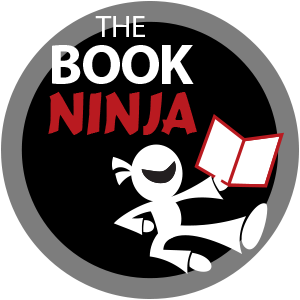Writing is truly a unique art form. A good author must be part psychologist, part poet, part conversationalist, a powerful observer, and a talented story weaver—all rolled into one person. As one of my favorite books on writing, Write More Good by The Bureau Chiefs, Creators of @FakeAPStylebook pokes fun at correct grammar usage in the journalism industry, the fact remains that when it comes to book publishing, good writing outsells bad writing any day.
While writing comes in many different genres and styles, the general practice of writing high quality content can be divided into eight areas. Once you know how to make use of these ideas, your writing will greatly improve. Here are the eight strategies to making sure your book contains well-written content fans will rave about:
#1: Know Your Audience
Believe it or not, one of the most overlooked essentials in today’s writing world is the audience itself. As an author, you must ask yourself, for whom exactly are you writing? Is your book directed at teenagers, or a senior citizen? Is it for people who love to figure details out for themselves, or for those who need step-by-step instructions for how to boil water?
If you think your audience is “everybody,” think again. Every book’s audience can be narrowed down. The narrower it is, the more successful your book will be.
#2: Know Your “Competition”
I personally believe there’s plenty of business for everyone, and most “competitors” could actually complement each other very well. By studying what your colleagues and those writing similar content to your book are releasing to the world, you can create something of value to your potential readers.
#3: Remember Real Life
For a reader to want to buy your book, the material inside must be relatable. For fiction writing, that means the reader has to either use your book to escape from their reality or be able to empathize with the character (or you, the author) because of the realism you present. Even if your world is filled with dragons and elves, something about your writing should speak to the reader on a fundamental, personal level.
For non-fiction, use personal, real-life examples to teach lessons, drive home points, and explain your concepts further in-depth. Using stories and examples that are based on reality engage your reader and even make a sometimes dry topic much more interesting.
#4: Read More than You Write
As any successful writer will testify to, one of the most important things an author can do is read. Read to do research, read to learn about your competition (colleagues), and read to find inspiration.
I personally read a lot of non-fiction. I read newsletters, articles, magazines, and books. And I notice as I write, I tend to pick up the good writing habits of those pieces I recently read. The more you read, not only will you have more information, but the better writer you’ll become.
#5: Know Your Genre
You may have a unique and promising idea, and if your book’s written and published during a slow time in the market for your genre, your sales will suffer. Be aware of backlashes in the market, or times when markets have been saturated and readers become hostile to certain subject areas. While some markets like the health and wellness or inspirational industries can handle a lot of saturation, others like chick lit and vampire sagas cannot. When a market gets too saturated with the same-old predictable books, readers stop buying as many in that genre and getting on the best-seller list can be an uphill battle.
#6: Welcome What You Don’t Know
From day one, most writers are told to “write what you know.” Unfortunately this well-meaning advice has led to countless boring or confusing books. If you focus only on what you know, the end product will be lacking in detail and vision. Simply put, since you’re so familiar with the subject, you may unconsciously assume that your readers know the same things you take for granted.
Always look at your topic with new eyes and remind yourself of what your reader needs to understand to get the full picture.
#7: Humor is Your Best Friend
Without a doubt, humor is perhaps one of the easiest ways to relate your content to your audience. Even if you’re writing a suspenseful horror novel, interjecting a little comic relief is a great idea. It relieves tension and allows the reader to occasionally breathe a sigh of relief. For non-fiction, humor brings life to otherwise straight and dry text.
#8: Book or Advertisement?
Let’s face it, some books are badly written to begin with. Hiring a professional editor can help, and I’ve read some books that supposedly were edited, yet were still basic outlines with very little description. Those poorly written books are still better than the types that are nothing short of one sales letter after another trying to get the reader to purchase the author’s or the author’s friends’ products.
Speaking of Editing…
No matter how good of a writer you are, your book will always need edited. Your close friends and family may buy your book and leave glowing Amazon reviews to support you, but all it takes is one nasty Amazon review from a reader outside your circle to dampen your overall sales. If you have a list of devout followers who hang on your every word, you can get them to give your book five stars on Amazon. However, be careful as too many five-star reviews paired with a lot of one- and two-star reviews attacking the content will tell the truth that your book is poorly edited or badly written to begin with.
Note: This article is a small portion from the chapter, Write More Good in Kristen’s Kindle book, Author’s Quick Guide to Making Your Book a Best Seller. (Hint: Click the link to grab your copy today!)


Wonderful article, Kristen! I agree with a lot of your points, especially editing. You will not always agree with everything your editor is saying. If the editor has made a strong case for why something or some character should be eliminated, then you need to figure out why you’re pushing back. Most of the time, the reason is because this actually happened in real life. I wish I could have a quarter for how many times I’ve heard that. It doesn’t matter if something like that actually happened; if it’s not working on the page, then it needs to go.
Hi, Kristen – as a writer and writing coach you do need to learn the difference between compliment and complement.
Jenny,
I do know the difference between compliment and complement. Thank you. Typos happen, which is the entire point of the post. I could leave it there out of spite to make a point of the obvious. 😉
Honestly, it could be something to blame on autocorrect. And, it just drives home my point that NO writing is ever perfect. There will always be typos.
Thanks for pointing out that typo – I fixed it, because grammatical errors bug me. Especially when they’re my own. 🙂
Hi Kristen,
These are all good points.
I’m curious about one thing. I’ve never worked with an editor. if you’re a good writer and have also structured your book well, what will an editor bring to the party (besides proofreading — which is more of a copyediting job)?
OK, I’m curious about another thing. You’re the first blogger I see using the “send to kindle” plugin. What do you see as the benefit of this — does it improve readership because the person can read it later? Or is it more just keeping yourself top of mind with your reader by being on their Kindle too?
Thanks!